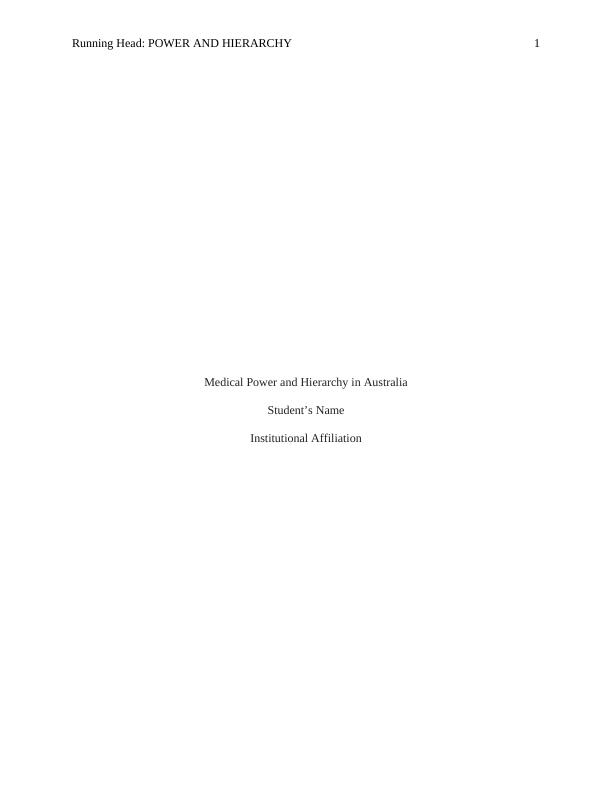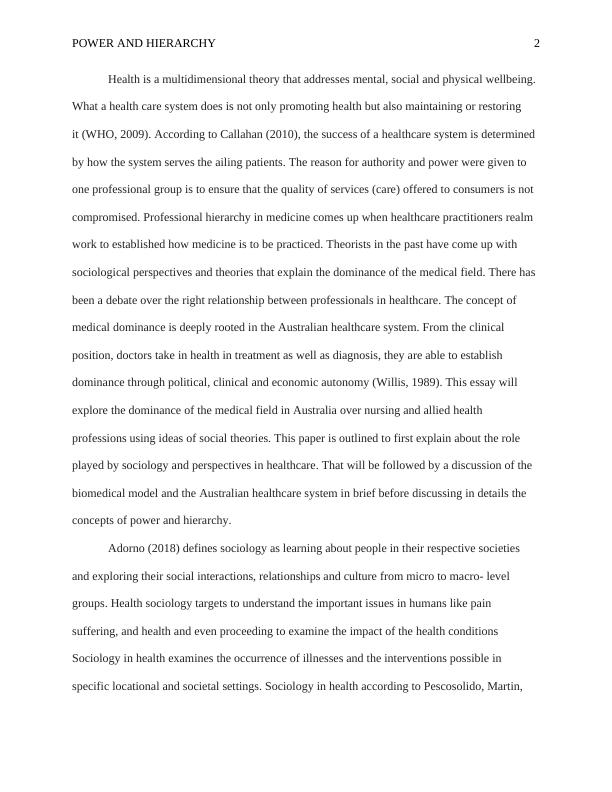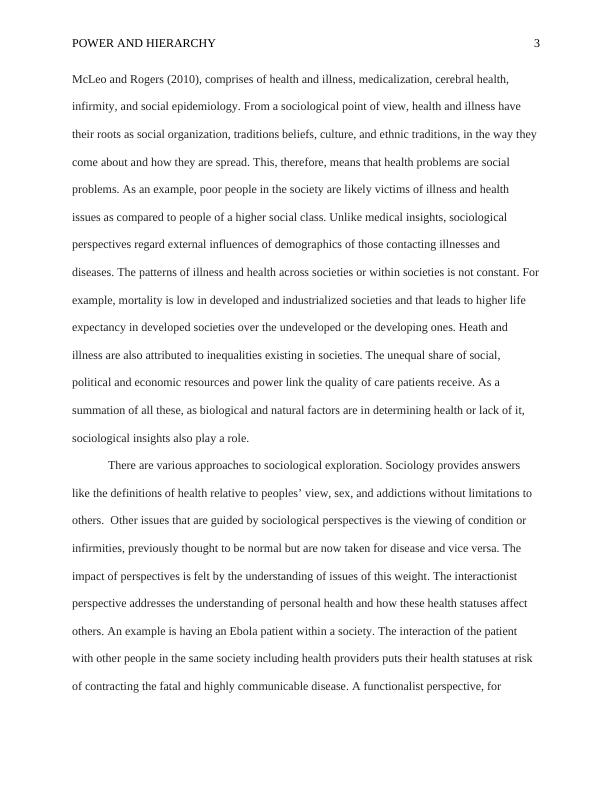Medical Power and Hierarchy in Australia
Strengths and limitations of the argument in a health sociology essay.
10 Pages3143 Words146 Views
Added on 2023-06-03
About This Document
This essay explores the dominance of the medical field in Australia over nursing and allied health professions using ideas of social theories. It discusses the biomedical model and the Australian healthcare system in brief before discussing in details the concepts of power and hierarchy.
Medical Power and Hierarchy in Australia
Strengths and limitations of the argument in a health sociology essay.
Added on 2023-06-03
ShareRelated Documents
End of preview
Want to access all the pages? Upload your documents or become a member.
Hierarchy and Power in the Australian Health Care System
|13
|3764
|83
Hierarchy and Power in Australia Health Care System
|9
|3350
|462
Hierarchy and Power in Australian Health Care System; Social Theories
|9
|3461
|335
Hierarchy and Power in the Current Healthcare System in Australia
|10
|2928
|396
Hierarchy and Power in the Australian Healthcare System
|8
|2775
|240
Health SOCIOLOGY INTRODUCTION
|8
|3476
|179



